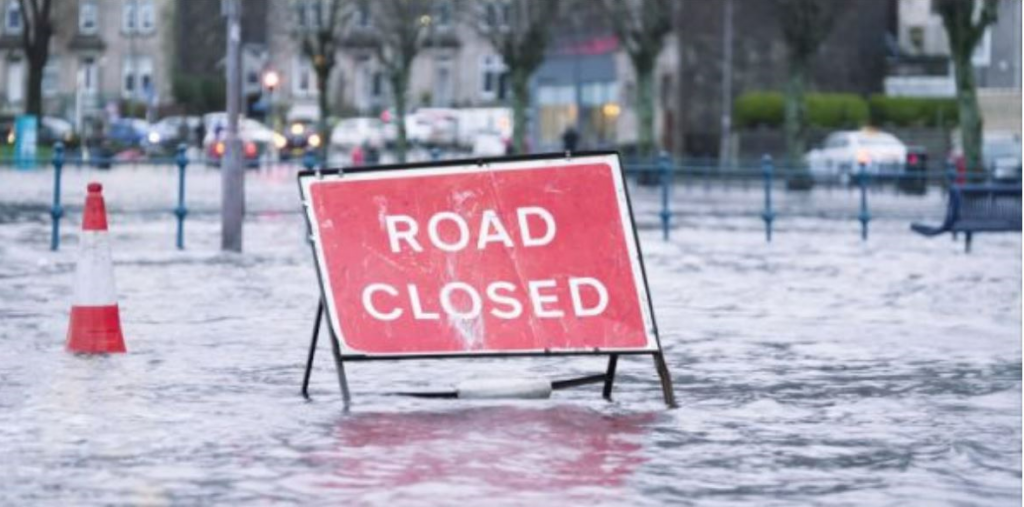
A successful bid for £36,000 is to be used to help improve the mental well-being of communities at risk of flooding.
The bid for funding by West Yorkshire Flood Innovation Programme (WYFLIP) has been approved during the Environment Agency’s national Flood Action Week by Yorkshire Regional Flood and Coastal Committee.
The money will be used for the initial developmental stage of a Flood Risk and Mental Wellbeing Project, led by Kirklees Council, to reduce the impact of flood incidents by helping people become more resilient and recover more quickly from flood incidents by improving their mental wellbeing.
This stage will focus on how the project can complement and build on other work in the flooding and mental health fields, define how learning can be shared widely to other locations and gather information needed to create a robust business case for its sustainable future.
Mental health plays a key role in flood resilience and the overall impact of flooding. Research shows people whose homes have been flooded are six times more likely to have post-traumatic stress disorder, depression and anxiety. Residents who have experienced flood water entering their homes have significant mental health impacts. These issues reduce the resilience of affected communities and their ability to respond to and recover from future flood events.
The WYFLIP is a programme of innovative work aiming to reduce the impact of flooding and climate change in the region. Levy funding has not been used before to explore and reduce the mental health impacts of flooding before so this project will be a unique pilot.
We are delighted that the Regional Flood and Coastal Committee has decided to fund this project, our bid was a little bit different from usual requests as we were not asking for money for flood defences.
A key goal for the project’s development phase is to identify other sources of funding for its delivery by exploring match funding opportunities so that the work is sustainable, Cllr Katie Kimber, Spokesperson for WYFLIP and Luddendenfoot councillor, Calderdale Council
There is need for investment now, as a consequence of worsening climate change is that issues of both flooding and the associated mental health consequences are expected to become worse in the future. It is important to build our capacity and ability to understand and manage these impacts and support those affected.
Flooding is unpredictable and we do not know when the next flood will occur so we need to start building resilience and preparedness in these communities, Cllr Munir Ahmed, Cabinet Member for Environment and Highways at Kirklees Council
This is an innovative pilot project and our aims are to share new learning to help support the mental wellbeing of people at risk of flooding.
It is another great example of strong partnership working between organisations.
We are delighted that our hard work in co-ordinating WYFLIP also ensures that academic research can feed into enhanced flood resilience in the region, and we now have another important project that will add significant value, Professor Joseph Holden, Director of iCASP and water@leeds, University of Leeds.
Five communities in Kirklees, which have experienced severe flooding in recent years, have been selected to be the initial target areas. They are Birkby, Liversedge, River Colne and River Holme Catchments and Mirfield.
As part of the development stage, Kirklees Council is investing £20,000 in psychological first aid training for frontline staff that work directly within communities at high risk of flooding.
During the delivery stage, the project includes:- measures such as access to support from a mental health specialist charity, running campaigns to raise awareness of the support available through mental health charities, promoting green social prescribing, holding practical, well-being events in areas where communities are at risk of flooding to help improve their wellbeing and putting together wellbeing packs with tips to build resilience. There will also be wider environmental and recreational benefits for residents including improved physical wellbeing, connection to nature, community togetherness and resilience.
West Yorkshire Flood Innovation Programme (WYFLIP) is a partnership of the five local authorities in West Yorkshire, the Environment Agency, Yorkshire Water, the West Yorkshire Combined Authority, and the Integrated Catchment Solutions Programme (iCASP) based at the University of Leeds. It also has support from local stakeholders including the local resilience forum, emergency responders, the third sector and community groups and local councillors. The WYFLIP board will support delivery of the project by organising annual stakeholder workshops including mapping, sharing learning and exploring ways to build on existing projects.
For more information contact Cath Seal, WYFLIP communications officer, email: C.Seal@leeds.ac.uk
